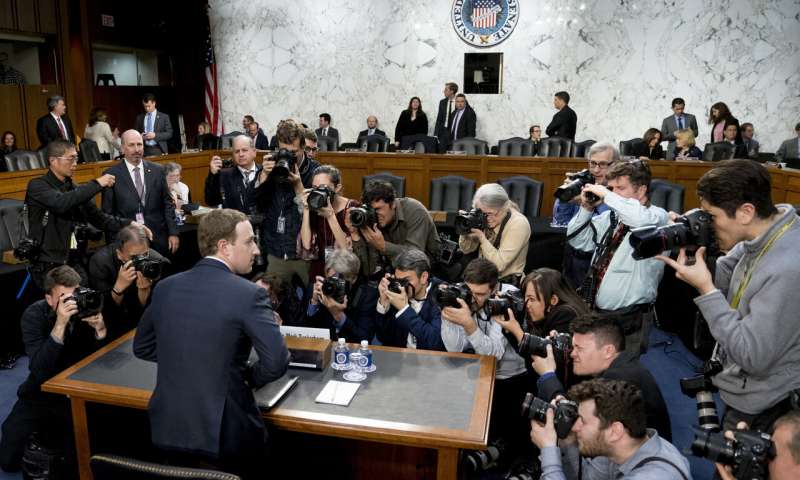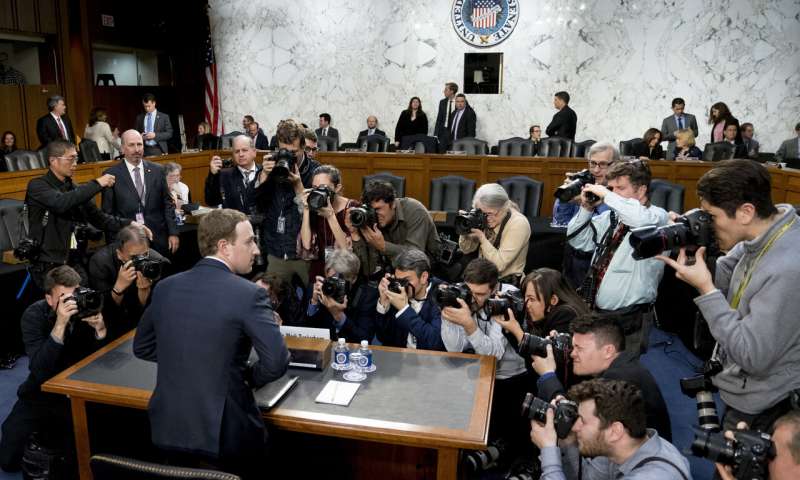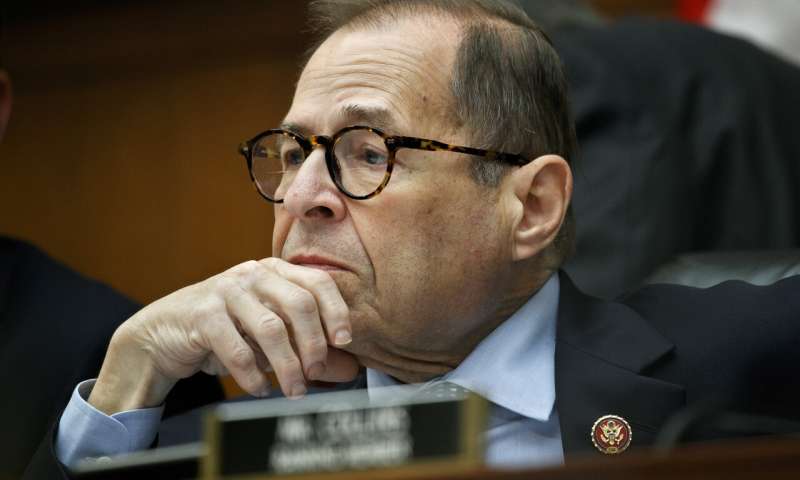House panel taps startup for Facebook files


A U.S. congressional committee has requested a trove of internal Facebook documents that the company’s critics say will demonstrate how the social media giant unfairly leveraged its market dominance to crush or absorb competitors.
The request by the House Judiciary Committee comes amid a flurry of new antitrust investigations of technology giants, including ones by the Federal Trade Commission and state attorneys general. At issue here is a cache of internal Facebook documents unearthed in a case brought by Six4Three, a defunct startup whose founders have waged a bitter four-year legal battle with the social network.
In a nine-page Sept. 13 letter obtained by The Associated Press, the House committee requested all substantive filings from Six4Three’s lawsuit. That would include thousands of pages of internal Facebook documents and emails, some authored by CEO Mark Zuckerberg, that were ordered sealed by a California judge. The AP has obtained many of these documents.
The Wall Street Journal recently reported that the House committee made document requests to “dozens” of smaller companies that compete with Facebook, Google, Amazon and Apple.
Six4Three, however, could offer unique insights into Facebook’s behavior, as its documents provide an inside view of executive deliberations and decisions that might be viewed as anticompetitive conduct. Some antitrust investigators have already cited them as potentially important evidence in probes of the company.
Several hundred pages of the documents became public in late 2018 after British lawmakers ordered Six4Three managing director Ted Kramer to turn over much of the trove while he was visiting the U.K. Others were leaked to British journalist Duncan Campbell and shared with the AP and NBC .
Kramer and his founding investor, Thomas Scaramellino, allege that Facebook deceived and then crushed their startup—and thousands of others—by abruptly shutting down access to user data essential to their businesses.

Documents unearthed in the Six4Three case suggest that Facebook separately targeted specific outside apps for cutoff because they competed with Facebook’s own core services , particularly messaging and photo/video sharing. One was the now-shuttered MessageMe, which has also received a document request from the House committee, according to its former CEO, Arjun Sethi. So has at least one other aggrieved startup, although its founders did not want to be named.
Facebook publicly minimized the scope of its data access shift, describing it as minor changes necessary to protect user privacy. But the effect, its critics charge, was to let the social giant pick winners and losers among companies whose existence depended on Facebook user data.
A few Facebook employees objected to the plan as unethical, according to documents . “It just makes me feel like a bad person,” wrote one.
Facebook denies the allegations and otherwise declines to discuss the case, the documents or their wider implications. In a statement, the company’s deputy general counsel, Paul Grewal, said Six4Three “continues to mischaracterize documents and testimony” in the service of “meritless claims.”
Grewal also stated that the company acted to protect user privacy: “We stand by our decision to limit the data that apps can access and protect people’s information.”
The U.K. parliamentary committee, which requested the documents as part of a broader inquiry into misinformation on social networks, published key emails and presentations from the Six4Three trove. It said companies like Facebook should not be allowed to act like “digital gangsters” in deciding whether other businesses succeed or fail.
It also rejected Facebook’s privacy explanation for the change, noting that the company continued to share—and sometimes overshare—user data with favored partners who spent heavily on Facebook’s ad network and posed little competitive threat.

Six4Three makes an unlikely crusader. Its only product was an app called Pikinis that let Facebook users seek out swimsuit photos shared by their friends. The feminist site Jezebel called it ” creepy ” when it launched in 2013 . In an interview, Kramer said Pikinis was merely a way of testing pattern recognition technology the company planned to deploy in future apps, that it respected user privacy settings and never made more than a few hundred dollars.
To Luigi Zingales, a University of Chicago finance professor who recently co-authored an academic report on reining in digital platforms , the Six4Three case has exposed “how much Facebook has succeeded in blocking competition in a lot of behind-the-scenes ways,” whatever anyone makes of Pikinis.
The startup’s lawsuit, however, has not gone well for Kramer and Scaramellino. Facebook, one of the largest companies in the world, launched a withering legal counterattack that, among other things, forced the plaintiffs’ trial attorneys to quit the case.
The trial judge also allowed a forensics firm that has previously worked for Facebook to collect 15 years of sensitive electronic records from the the entrepreneurs, including email exchanges with journalists and antitrust investigators. Facebook’s lawyers justified the intense scrutiny by alleging a conspiracy to leak the sealed documents.
Kramer and Scaramellino could also face potentially ruinous legal fees should the state court in San Mateo, California, order them to pay legal costs for Facebook and executives, including Zuckerberg, listed as defendants.
“The message is, if you go after Facebook, you’re done,” Kramer said in a recent interview.
Judge Raymond Swope has yet to rule on whether Facebook gets to see all the data its forensic investigators have amassed. But the new developments in Washington augur a crucial showdown in his California courtroom. Kramer and Scaramellino hope the legal and political scrutiny will force him to unseal the documents.

A Facebook lawyer has demanded that the plaintiffs refuse to provide the documents to Congress, a company spokesperson confirmed without discussing the letter’s content. Scaramellino said he and Kramer are “evaluating” their response.
After suing in April 2015, Kramer and Scaramellino could find no willing co-plaintiffs among the 35,000 or so startups the documents indicate were affected. Four developers they contacted told the AP that while they supported Six4Three, they lacked stomach for the fight or feared being blacklisted. Afraid of retribution from Facebook or its allies, they asked not to be identified.
One developer still active in Silicon Valley said multiple Facebook executives told him they would make his life “a living hell” if he sued. Others have moved on to other endeavors, some with financial backing from Facebook.
Six4Three did pick up an ally last year after Frans Rosén, the Swedish principal of another affected startup, Styleform IT, met Kramer in an ethical hacking competition the latter organized. After comparing notes, Rosén said he realized Facebook had carried out, in his words , a “devastating extortion scheme.”
Rosén sued Facebook in November, although his case is in peril because he hired the same trial lawyers as Six4Three. He’s now seeking new counsel—and additional plaintiffs—and has until Dec. 1 to find them.











